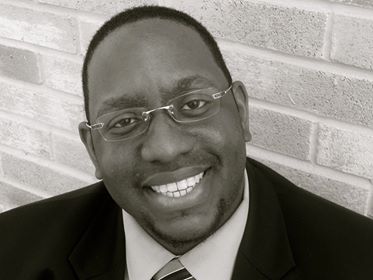Where’s the Line? By Jason Hines
Like much of the nation, I followed the confirmation hearings of Judge Brett Kavanaugh for the United States Supreme Court last week. After several women raised allegations of sexual misconduct against the presumptive nominee, the Senate Judiciary Committee was forced to have a hearing to listen to the first of his accusers, Dr. Christine Blasey Ford. While there were certainly the salacious nature of the allegations, the drama of the dueling testimonies, and the real pain that women around the country experienced vicariously through Dr. Ford, never far from the front of my mind was how the Kavanaugh hearings and confirmation process for the Supreme Court was emblematic of the continued downfall of conservative Evangelicalism in America.[1]
First, a word about the politics of the hearings themselves. The thing that astonishes me most about the process, especially once these allegations came to light, is how little faith the Republican Party seemed to have in their own nominee. There are just too many good reasons to hold a full and thorough investigation prior to confirming Judge Kavanaugh. It is important to note that time is not of the essence here. If the GOP senators on the Senate Judiciary Committee are as confident as they say they are in Kavanaugh’s innocence then you can hold a brief investigation and proceed once Kavanaugh is exonerated. It could’ve been completed before the midterms.[2] Moreover, a full investigation inoculates then Justice Kavanaugh from future ramifications. Confirming Judge Kavanaugh without a full investigation does not settle the matter. Instead it leaves a hanging question that someone will attempt to answer. If and when that day comes we may be looking at the impeachment of a sitting Supreme Court justice instead of the withdrawal of a nomination. From a political perspective, the Republican Party was well positioned to have their cake and eat it too. For some strange reason, they decided to politically paint themselves into a corner.
Second, as it pertains to Christian religiosity in America, it seems to me that we have forsaken another golden opportunity. It disappointed me to see some Evangelical leaders either be dismissive of Dr. Ford’s allegations or pray that she fail. Any time fate allows the stories of the oppressed to filter into the social and cultural consciousness, Christians have a unique opportunity. It is in these moments that we should stand in the breach as a refuge for those who have been struggling. This time, the oppressed group is women in general and sexual violence survivors (of any gender) in particular. This is the time when churches should be opening their figurative and literal doors, offering comfort and a nonjudgmental ear to those who are struggling with the pain, guilt, and shame so often present in the aftermath of sexual violence. These are the types of people God came to Earth to help, and we do a disservice to the Gospel when we step over the oppressed and downtrodden on our way to a conservative justice or a tax cut.
Finally, it is unfortunate to say but it is true – we are not seeing anything new in Evangelical support for Kavanaugh as a Supreme Court justice. These are the same people who looked past the allegations of sexual misconduct against Donald Trump in order to elect him President. Despite this, I still found myself wondering after the testimony of Dr. Ford if there is any means that would not justify the ends in the Republican Party.[3] In 1644, noted colonist and advocate of church-state separation Roger Williams wrote, “when they have opened a gap in the hedge or wall of separation between the Garden of the Church and the Wilderness of the world… God has ever broke down the wall … and made his Garden a Wilderness.” Williams’ concern regarding church-state separation was not the effect of religion on politics, but rather the way religion could be corrupted. It seems the modern-day GOP is living out Williams’ critique. One would hope that the religious element in the GOP base would be the conscience of the party—and instead we have almost the exact opposite. Instead, the church has been corrupted by the influence of politics. Hopefully, a return of primary focus to ministry will be the antidote.
Jason Hines is a former attorney with a doctorate in Religion, Politics, and Society from the J.M. Dawson Institute of Church-State Studies at Baylor University. He is also an assistant professor at Adventist University of Health Sciences. He blogs about religious liberty and other issues at www.TheHinesight.Blogspot.com.
[1] It is unfortunate that in this country conservative Evangelicals have the loudest voices. Because of this, as the depiction of Evangelicals worsens, so does the depiction of Christianity as a whole in this country.
[2] Which, we should note, is the real concern on behalf of the Republicans.
[3] This is a little facetious. I’m sure there must be a line. But sometimes I do wonder if that line exists closer than the instance where Trump shoots someone in broad daylight.

